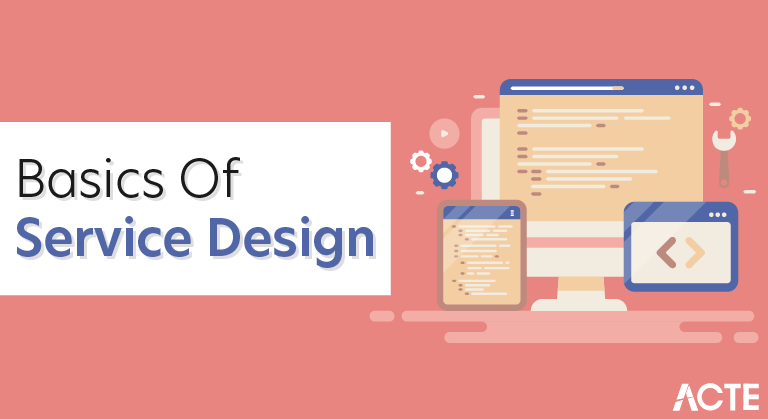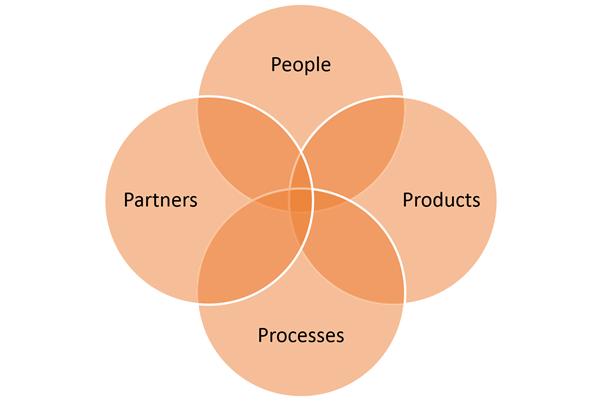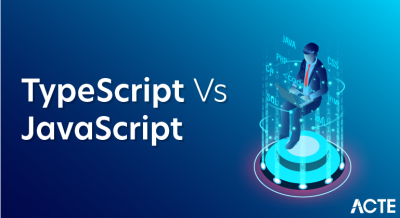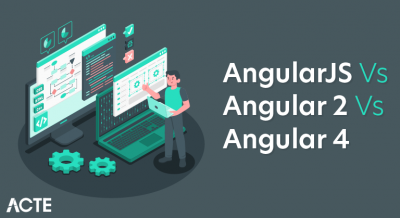
For services to give genuine incentive to the business, they should be designed with the business destinations at the top of the priority list. Design includes the entire IT association, for it is the association that conveys and backs the services. ITIL Service Design (SD) is the phase in the life cycle that turns a service procedure into an arrangement for conveying the business destinations.
ITIL SD gives direction to the design and improvement of services and service management rehearses. It covers design standards, techniques for changing over vital targets into arrangement of services and service resources. The extent of ITIL Service Design isn’t constrained to new services, it incorporates the progressions and upgrades important to increment or keep up an incentive to clients over the lifecycle of services, the continuity of services, accomplishment of service levels, furthermore, conformance to benchmarks and directions. It guides associations on the most proficient method to create design abilities for service management.
Different subjects in ITIL SD incorporate – design coordination, service list management, service level management, accessibility management, capacity management, IT service continuity management, data security management and provider management.
Note: Appearing for the certification exams is mandatory and the exam will happen on training day.
Key Features:- Online, E-learning and classroom training sessions
- AXELOS accredited trainers with over 12+ yr experience
- Soft copy of the study material along with post-training reading suggestions
- Concise and to the point course material
When is Next Batch
Is this right for me?ITIL Intermediate Service Design training & certification is mostly done by ITSM or ITIL professionals who’ve a core understanding of ITIL and working experience from IT industry under ITIL framework.
The Service Design qualification would suit candidates in the following IT professions or areas:
- Professionals who are seeking the ITIL Expert Certificate in IT Service Management
- Professionals who have ITIL Foundation Certificate in IT Service Management and willing to achieve to higher level ITIL certifications
- IT professionals working inside, or about to enter in a service design environment and requiring knowledge of the concepts, processes, functions, and activities involved
- Professionals who are looking to enter in ITIL Service Design stage of the ITIL service lifecycle and its implementation to increase the quality of IT service in an organization
- IT security managers, IT audit managers, Capacity Manager, Availability Manager, Service Level Manager, Business Continuity Manager, Service Portfolio Manager.
- IT consultants, IT planners, IT architects, Service designers, Team leaders, Supervisory staff, CTO, CIO
- Individuals who are going for the ITIL Master Certificate in IT Service Management for which they are required to pass eligibility criteria for ITIL Expert.
Syllabus:
Module 1: Introduction to Service Design
- The purpose, objectives and scope of Service Design
- The context of Service Design in relation to the Service Lifecycle
- Input, outputs of the SDP and Service Acceptable Criteria
Module 2: Service Design Principle
- Balanced Service Design
- Service requirements
- Aspects of Service Design
- Service-Oriented Architecture
Module 3: Service Design Processes
- Design Coordination
- Service Catalogue Management
- Service Level Management
- Availability Management
- Capacity Management
- IT Service Continuity Management
- Information Security Management
- Supplier Management
Module 4: Service Design Technology Related Activities
- Management of technology related activities commonly performed in the service design stage
- Service design activities and techniques within requirements engineering
- Data and information management
- Application management
- Capacity Management
- Service design activities and techniques within requirement engineering
- Service design activities and techniques within data and information management and associated with application management
Module 5: Organizing for Service Design
- Service design roles, responsibilities and capabilities
- Techniques for assigning roles are introduced and explained
- Aspects associated with the service design roles, responsibilities and capabilities
- The functions within service design
- Roles and responsibilities within the service design lifecycle stage for each of the service design processes
Module 6: Technology Considerations
- Interpret and analyze technology considerations in service design
- Upon completion, students should understand what is involved in the types of tools that would benefit service design
- The requirements for service management tools
Module 7: Implementation and Improvement of Service Design
- The service design issues relating to business impact analysis, service level requirements and risks
- The six-stage implementation approach
- Measurements of service design, as a prerequisite for success
Module 8: Challenges, Critical Success Factors and Risks
- Challenges, CSFs and Risks
Pre-requisites
ITIL Foundation Certificate in IT Service Management, from ITIL IT Service Management Essentials (V2) plus the ITIL V2-V3 Foundations Bridging Course or the ITIL V3 or 2011 edition Foundations course.
Key Benefits:
The Foundation level is the entry-level qualification which has numerous benefits for the organization as well as professionals.
Some of the major benefits are:
- Increased visibility in IT community
- Increase monetary returns
- Learn global best-practices
- Add value to your CV
- Stay updated with the market
What Will I Learn?
In this course, you’ll be immersed in the overall concepts, processes, policies, and methods associated with the Service Design phase of the service lifecycle. You’ll also cover management and control of the activities and techniques within the service design stage, not the detail of each of the supporting processes. Through lecture, exercises, and scenario-based questions, you will learn the core disciplines of the ITIL best practices.
The main process focus areas of this course include:
- Introduction to Service Design
- Service design principles
- Service design processes
- Common service design activities
- Organizing for service design’s functions
- Technology considerations
- Implementation of service operation
- Challenges, critical success factors and risks
Exam:
- A 90-minute exam
- 8 multiple choices questions, scenario-based
- Passing mark 70%
- You will attain 3 ITIL credits
- Attain 25 professional development units (PDUs) for Project Manager
Faculty:
Trainers for this batch are highly experienced professionals with 12+ years of industry experience. They’re working in top MNCs as ITIL consultants and delivering training as freelance consultants with NovelVista.
They’ve delivered training for more than 5000 professionals till date.
Their core expertise includes:
- ITIL Consulting & Implementation
- GAP Analysis, ISO Audits
- Process/Service Improvement Using Lean Six Sigma
- Process Definition, Implementation & Compliance
- Process Hygiene (ISO 20000)
- Quality Assurance & Program Governance
Professional Achievements:
- Certified ITIL V2 Master
- ITIL V3 Expert
- AXELOS Accredited Trainer
- PRINCE2 Practitioner
- PMP Certified
- Lean Six Sigma Black Belt
Training Delivery Style:
This ITIL Intermediate SD Certification focuses on experiential learning. The material of this course is divided into 60-90 minutes of interactive sessions.
Not only this, if you are participating, expect yourself to get indulged with interesting group activities. By this, you will get a chance to put the theory into action.
This training will be nothing like any ordinary training you imagine. We follow a vast range of creative methodology which will allow you to wrack your grey matter and boost your energy up to participate.
The key features of our training program would be:
- Training sessions in a storytelling format
- Exhibition of concepts with the help of professional examples
- Self-analysis and group discussions
- Case studies as the application of the concepts which were taught
- Vibrant presentations along with individual and team activities
- Post-training reading suggestions
Key Benefits
The Foundation Level is the entry-level qualification which has numerous benefits for the organization as well as professionals. Some of the major benefits are:
- Increase Visibility in IT community
- Increase Monetary Returns
- Learn Global Best Practices
- Add value to your cv
- Stay updated with the market
What I Will Learn
In this course, you will be immersed in the overall concepts, processes, policies, and methods associated with the service design phase of the service lifecycle. You will cover management and control of the activities and techniques within the service design stage, not the detail of each of the supporting processes. Through lecture, exercises, and scenario-based questions, you will learn the core disciplines of the ITIL best practices
The main process focus areas of this course include:
- Introduction to service design
- Service design principles
- Service design processes
- Common service design activities
- Organizing for service design: functions
- Technology considerations
- Implementation of service operation
- Challenges, critical success factors and risks
EXAM – Certification
- A 90-minute exam.
- 8 multiple choices questions, scenario-based
- Passing mark 70%
- You will attain 3 ITIL credits
- Attain 25 professional development units (PDUs) for Project Manager
Faculty :
Trainer for this batch is a highly experienced professional with 12+ years of industry experience. He is working in one of the top MNC as an ITIL consultant and delivering training as a freelance consultant with NovelVista.
He has been delivering training for more than 6 years and trained more than 5000 professionals. His core expertise includes:
- ITIL Consulting & Implementation
- GAP Analysis, ISO Audits
- Process/Service Improvement Using Lean Six Sigma
- Process Definition, Implementation & Compliance
- Process Hygiene (ISO 20000)
- Quality Assurance & Program Governance
Professional Achievements:
- Certified ITIL v2 Master
- ITIL v3 Expert
- Axelos Accredited Trainer
- PRINCE2 Practitioner
- PMP Certified
- Lean Six Sigma Black Belt
ITIL defines the 4 P’s of ITIL Service Design (or Service Management) as:
- People
- Products
- Partners
- Processes

To ensure that the IT services we are providing to an organization are fit for purpose and fit for use, it is imperative that we consider all the People, Products, Processes and Partners involved.
Failure to have the four P’s in mind will lead to services that fail to appropriately meet the needs of the business, IT and users of the service. To gain the greatest benefit from the use of the four P’s, organizations should determine the roles of processes and people, and then implement the tools to automate the processes, facilitating people’s roles and tasks.
We’ve seen it all before: a spectacular launch of a new product or an overdue upgrade. And then the complaints start coming in – key features not working, personal data compromised, or support limited in nature. Before long, the help desk is unable to keep track of the avalanche of tweets, and developers are struggling to get fixes in as the bosses are on their necks, demanding answers, while regulators prepare warnings and fines. And the scenario keeps replaying, and it usually boils down to whether all bases were covered when the product was being designed.
When it comes to designing of IT services, it is crucial that everyone involved understands that we are not just looking at the solution itself but also everything else that will manage the quality of the service in a way that meets the needs of the business funding the service, IT staff developing and managing the service, as well as users of the service. A holistic approach is required to ensure that not only is functionality considered, but also the warranty aspects tied to service levels agreed with the customers of the service. When following best practices such as ITIL®, the objective becomes designing these services so effectively that minimal improvement during their lifecycle will be required.
What this means is that functionality together with management and operational requirements have to be considered at the very start during service design. A holistic approach to designing an IT service will consider five main aspects:
- Service solutions for new or changed services
- Management information systems and tools
- Technology architectures and management architectures
- The processes required
- Measurement methods and metrics
And that is where the four P’s comes into the picture.
People are central to the successful development, deployment and operation of any IT service. A good relationship between a service provider and its customers relies on the customer receiving an affordable service that meets their needs and which performs at an acceptable level. Without understanding customer outcomes or the value they want to achieve from the service, there is a huge chance that the designed service will fail to satisfy their needs, resulting in wasted resources and opportunities for the organization involved. The IT staff involved in design and delivery of the service have to be properly trained and equipped to ensure that the requirements from the customers are actualized.
Products here refer to the service itself and the underlying technology. In pursuit of the balance between functionality, performance and cost, choosing the right technology cannot be overstated. While the main driver will be the features that come from the customers’ requirements, it has to be underpinned by the appropriate environment, infrastructure, applications, interfaces and data sources that will make the service work. And how these are put together like a jigsaw will depend on the choice of architecture that will drive the technology design activities.
Processes take one or more inputs and turn them into defined outputs. They include all of the roles, responsibilities, tools and management controls required to reliably deliver the outputs. A mature process is one where appropriate controls and enablers have been provided to enable the process activities to run effectively and efficiently. Whether automated or manual, it is vital that appropriate processes be developed to support the new services during design to ensure that once the services go live, the right process activities and roles are put in place—whether access or request fulfilment, change or deployment, inventory or billing.
Partners have become essential to today’s IT service delivery particularly in this age of outsourcing, managed services and cloud computing. Any service provider will usually procure service components from an approved supplier, and the underpinning contract will usually specify terms, conditions and targets that will support the service levels agreed with the customer. Whether a strategic, tactical, operational or commodity supplier, it is essential that a good working relationship is established as the IT service provider will never meet the needs of the business without the help of a partner who is in tune with the organization’s needs.
In conclusion, the design of any IT service must consider all the elements required for the service to be delivered and managed in the way that the customer envisages and will result in value for the money spent. Any IT service provider worth their salt has to be cognisant of the four P’s while using an integrated approach to deliver the desired business outcomes and planned results in a quality and cost-effective manner. So whether it’s an app, a cloud service or connectivity, a holistic approach that covers all bases is the only way to design right.






